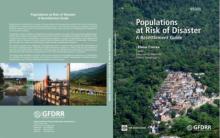Land Library
Welcome to the Land Portal Library. Explore our vast collection of open-access resources (over 74,000) including reports, journal articles, research papers, peer-reviewed publications, legal documents, videos and much more.
/ library resources
Showing items 1 through 9 of 12.This note aims to provide information and analysis as a basis for a better understanding of the challenges and constraints of achieving gender equality in Bolivia, with a special focus on the intersectionality between gender and ethnicity.
The North Eastern Region (NER) in India is endowed with rich energy resources but faces significant bottlenecks in electricity access and availability levels. The per capita power consumption in NER is one-third of the national average.
The Philippines has made significant progress in empowering women and in advancing gender equality. The government's policy on gender equality and women's empowerment has prioritized women's economic empowerment, advancing human rights and enhancing gender-responsive local governance.
This book is designed for governments that make decisions on the application of preventive resettlement programs as disaster risk reduction measures, as well as for institutions and professionals in charge of preparing and implementing these programs, civil society organizations participating in
The Bank's environmental agenda has evolved gradually since the 1970s. During the 1970s and 1980s, the main focus was on mitigating the potential environmental damage associated with investment projects using environmental impact assessments (EIA).
Since 2005, a growing number of vulnerable communities and nations have used the human rights lexicon to argue their case for an urgent and ambitious response to climate change.
Biologically diverse ecosystems in countries served by the World Bank provide an array of valuable economic services.
The Development Marketplace 2009 focused on adaptation to climate change. This paper identifies lessons from the Marketplace and assesses their implications for adaptation support.
This note discusses the development dimensions of forced displacement, and the potential role of the World Bank to address these dimensions and contribute to durable solutions for group's who have returned from or are in displacement situations.









